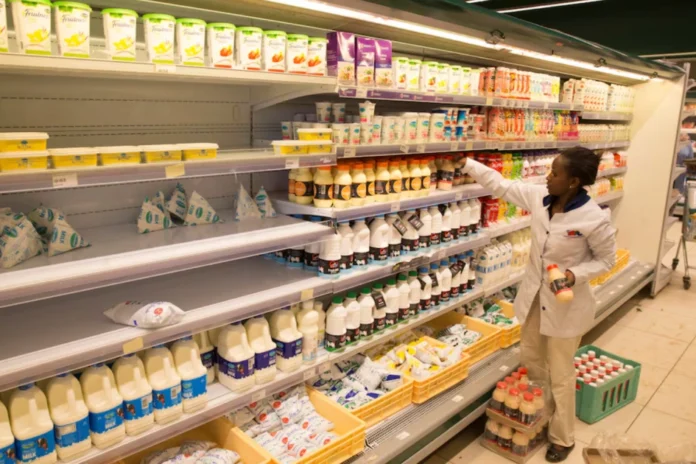
Nearly 90% of packaged food and beverages sold in Kenya may soon carry front-of-package health warning labels under new government rules, according to a groundbreaking report released by the Netherlands-based non-profit Access to Nutrition Initiative (ATNI).
The report follows the Kenyan government’s release of a new nutrient profile model this month, which will guide the implementation of clear warning labels on food products that contain excessive amounts of salt, sugar, or saturated fat. The initiative makes Kenya one of the first African nations to take such decisive action on food labeling in response to rising obesity and diet-related diseases.
ATNI’s assessment, based on 746 products sold by 30 leading food and beverage companies, both local and international, found that nine out of ten items would require a warning label under the new criteria. Companies implicated include global giants like Coca-Cola and Nestlé, as well as Kenyan firms such as Brookside Dairy Ltd and Manji Foods Industries.
Even fortified products, like sweet biscuits and yoghurts enriched with essential vitamins and minerals, were not spared. Over two-thirds were still deemed “unhealthy” under international models like Nutri-Score, which also considers beneficial nutrients.
“You could end up addressing micronutrient deficiencies through some of these products, but also contributing, arguably, towards non-communicable diseases at the same time,” said Greg Garrett, Executive Director of ATNI.
The report highlighted alarming trends in Kenya’s nutrition landscape. Between 2018 and 2023, sales of processed packaged foods increased by 16%, while adult obesity rates have tripled since 2000. Currently, 45% of women and 19% of men are either overweight or obese.
Katherine Pittore, ATNI’s Head of Policy, warned that Kenya is at a critical juncture. “Kenya is at this tipping point where they could follow in the paths of countries like the U.S., where we are seeing really high levels of obesity and overweight, or they could act now to try to prevent that,” she said.
The government’s commitment to implementing the nutrient model and labeling system has been widely lauded by health advocates, though neither state authorities nor the food companies named in the report responded to requests for comment.
ATNI, which has previously assessed food environments in countries like the U.S. and India, said its work in Kenya and Tanzania marks its first major deep-dive into African markets, a region where dietary habits are rapidly changing.
As Kenya moves forward with regulation, the country may set a precedent for broader nutrition reform across Africa, aiming not only to inform consumers but to curb the looming crisis of non-communicable diseases.
Written By Rodney Mbua


















